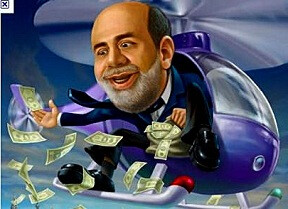not clear if the next batch i-bonds will have a positive fixed rate, but if they do it won’t be anywhere near the fixed rate on 30 year treasuries.
Name checks out! ![]()
in other news
Who knew winning a Nobel was so easy?

Random thought I just had:
Since COVID hit the major factor of the economy has been that tons of people (mostly older Boomers) have retired, but the economy has stayed strong due to central money keeping demand high, therefore STONKS
If a recession hits, could it tank demand not through rising unemployment and falling wages, but through NOT STONKS meaning that retirees have to cut back on their spending rather than re-entering the workforce?
In my experience boomers just keep doing whatever the hell they are already doing or want to do regardless of economic reality so they will probably get bailed out somehow or make their kids pay for it like always.
The Boomers need the rest of the economy to keep chugging along so they can keep buying boats and boner pills and neverending breadsticks. They’re never giving any of that up so this is our chance to take all their money with generational surge pricing.
It was a random thought but basically you’ve stumbled on to the Wealth Effect which is a pretty fundamental principle of Economics, and sort of added a twist about how it may be stronger among those who are near retirement age, which seems totally plausible. The fact that these same people have outsized political influence makes the responses pretty spot on, even if they were intended to be funny rather than serious
Is there a world where NOT STONKS doesn’t result in rising unemployment and falling wages?
Well we seem to be in a world where falling unemployment = more fed action = not STONKS so we’re actually not too far off at this point.
It might be the world where we live in, where demand for labor is very high and supply of labor is relatively low. So in a struggling economy, the first place companies look to scale back and reduce costs isn’t by laying off employees.
This is making jobs stickier right now. I do at some point in 2023 the story will be the job market materially underperforming expectations for a period as companies “catch up” to reduced demand and to beef up structurally lower profit margins. (I expect the secondary story will be about at least a plurality of businesses, especially larger companies, using the softer market as a cudgel to get back to 5 day in the office work weeks)
Yes, Bernanke got it, but the bigger story is the other two - Diamond and Dybvig. They are (imo) definitely more famous academically than Bernanke (although Bernanke did have academic chops before his Fed role).
The real reason I’m posting this is to point to Dybvig’s picture, which is absolutely amazing. You are not ready for this:

It is funny we have all this inflation in wages and many people are saying it’s tied to a lack of immigration. Does this mean the “they took our jerbs” crowd was right all along?
I went to grad school for economics, so I’m more surprised at economists who look like normal people
Wages aren’t keeping up with inflation. Maybe low skilled labor is benefiting, but other people definitely aren’t.
Well wages are supposed to be sticky and inflation is still relatively new
It is funny we have all this inflation in wages and many people are saying it’s tied to a lack of immigration. Does this mean the “they took our jerbs” crowd was right all along?
Interesting question. I say no, because I reject the existence of a labor shortage. But many don’t.
I think wages were up ~5% and inflation is ~10%
Companies can raise prices much faster than everyone can find a new better paying job.
Companies can raise prices much faster than everyone can find a new better paying job.
its possible we dont start seeing layoffs until after inflation is under control and companies dont have an excuse to jack up prices by inflation x2
